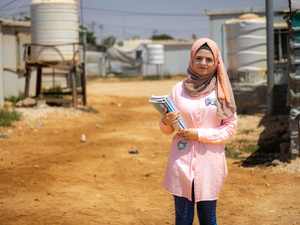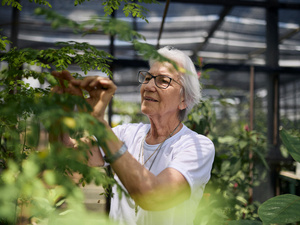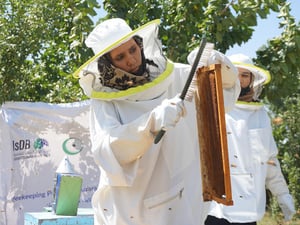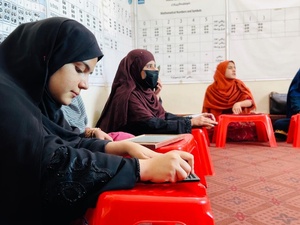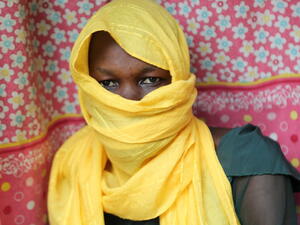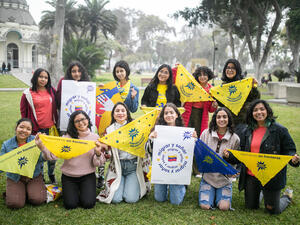The dilemma that faces some female Colombian refugees
The dilemma that faces some female Colombian refugees

Many refugees from Colombia, including women and children, cross into Esmeraldas province in northern Ecuador. Some end up in rundown neighbourhood's like this one, where they can face difficulties finding work and getting by.
ESMERALDAS, Ecuador, May 14 (UNHCR) - Alba* fled from her home in Colombia a year ago, fearing for her life after receiving death threats and suffering sexual violence from members of an illegal armed group. But in Ecuador she has been forced as a last resort into a new kind of hell, selling herself for sex to survive.
When the asylum-seeker arrived in northern Ecuador's Esmeraldas province, she struggled to find the permanent employment she desperately needed to provide for herself and her two children, including a two-year-old daughter who needed an operation for a dislocated hip.
In desperation, she went to work in a brothel in Esmeraldas, where she feared for her safety and was constantly worried that her family would find out. After being badly beaten by a regular customer, she left her children with her sister and moved to a brothel in Pastaza province, across the Andes In the east of the country.
"If I filed a complaint my mother, sister and children would know how I earned a living," she said softly, head bowed in shame. She wants to get out. "I do not know what to do. I do not want to keep using my body," she told UNHCR, which has been working with partners to find solutions for women like Alba.
The dilemma that Alba faced in Ecuador is shared by many others fleeing to Esmeraldas. Of the 55,000 registered Colombian refugees in Ecuador, many are women heads of household, who must work to keep their families alive and together. Moreover, many find it a challenge to access the asylum system. They are particularly vulnerable to exploitation and discrimination, and they struggle to find employment. Some end up as commercial sexual workers, though precise figures are not available.
These women and other victims of sexual violence are of concern to UNHCR. "Survival sex is the cruellest aspect of exploitation to which refugee women in Ecuador are exposed on a daily basis. Combatting this type of violation of the rights of refugee women is definitely the biggest challenge for us," said Óscar Sánchez-Piñeiro, head of the UNHCR office in Esmeraldas. "We know that it is impossible to move forward to reach equality, development, and peace without protecting refugee women from this serious form of violence."
For the past year, UNHCR has been working with government, NGOs and international organizations, to help those forced to become commercial sex workers as well as supporting measures to counter sexual violence and fight discrimination. This includes strengthening legal frameworks and enforcing mechanisms that focus on women's rights as well as spreading awareness among refugee women and girls about these rights.
The strategy includes funding income-generation projects that help women become independent and self-sufficient - and less likely to become sex workers or enter dependent relationships where they have to provide sex in exchange for a home and food. UNHCR is also leading the effort to create a shelter for female victims of violence where vocational training would also be offered.
But despite the efforts of the private-public alliance, the challenges are huge. Data is woefully inadequate and mostly anecdotal, which makes any meaningful analysis and extrapolation virtually impossible. Meanwhile, some communities seem to be in denial about the existence and scope of the problem. Victims can be ostracized.
"We cannot empower women to seek the justice they deserve because we are unable to decide where or how to strengthen justice systems," UNHCR's Sánchez-Piñeiro noted. He said new mechanisms were needed to help women like Alba and more efforts were needed to empower women so that they could do more to protect their own rights. "We can no longer prevaricate."
* Name changed for protection reasons
By Mileidy Capurro in Esmeraldas, Ecuador

